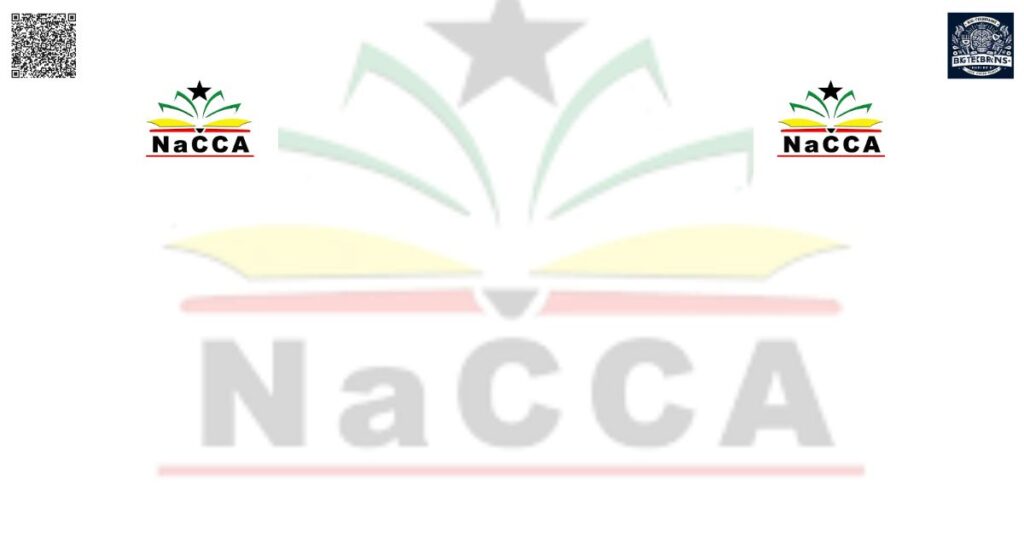Excerpt
The National Council for Curriculum and Assessment (NaCCA) is a pivotal institution in Ghana’s educational landscape, dedicated to enhancing the quality and relevance of pre-tertiary education. This article delves into NaCCA’s historical background, constitutional mandates, leadership structure, operational units, recruitment processes, affiliations, and significant reforms.
Historical Background
Established following the 2007 educational reforms, NaCCA initially functioned as an advisory board to the Curriculum Research and Development Division (CRDD) of the Ghana Education Service. The primary objective was to manage and implement the Ministry of Education’s curriculum policies to achieve national educational goals. In 2008, the CRDD was reconstituted as a statutory council under the Education Act of 2008 (Act 778). Currently, NaCCA operates under the Education Regulatory Bodies Act of 2020 (Act 1023), with a mandate to develop national curriculum and assessment standards for pre-tertiary education institutions, excluding technical and vocational education and training institutions.
Constitutional Mandates
NaCCA is entrusted with the responsibility of developing and determining advice on matters related to curriculum and assessment for pre-tertiary education, excluding technical and vocational education. This mandate ensures that the curriculum remains relevant and aligned with national educational objectives.
Leadership and Organizational Structure
The leadership of NaCCA comprises a Director-General, currently Prof. Yayra Dzakadzie, supported by a Deputy Director-General for Technical Services, Mr. Matthew Owusu. The organizational structure includes various directorates such as Curriculum Design, Planning and Development; Standards and Assessment; Research, Monitoring and Evaluation; and Finance and Administration. This structure ensures a comprehensive approach to curriculum development and assessment.
Offices and Units
NaCCA’s operations are organized into several key units:
Curriculum Design, Planning and Development:
- Focuses on creating and updating curricula to meet educational standards.
Standards and Assessment:
- Ensures that educational assessments align with national standards.
Research, Monitoring and Evaluation:
- Conducts research to inform policy and practice, and monitors the implementation of curricula.
Finance and Administration:
- Manages the financial and administrative functions of the council.
Recruitment and Appointment
NaCCA’s staffing structure includes positions such as Executive Director, Directors, and Deputy Directors across its various units. The recruitment process is designed to attract qualified professionals committed to advancing Ghana’s educational standards.
Oversight and Affiliations
NaCCA operates under the auspices of the Ministry of Education and collaborates with various educational bodies, including the Ghana Education Service (GES), National Schools Inspectorate Authority (NaSIA), National Teaching Council (NTC), and the Ghana Tertiary Education Commission (GTEC). These partnerships ensure a cohesive approach to educational policy and implementation.
Partners and Stakeholders
NaCCA engages with a broad spectrum of stakeholders, including educational institutions, teacher associations, and development partners. These collaborations are essential for the successful development and implementation of curricula that meet the needs of Ghanaian learners.
Operations and Job Roles
The core operations of NaCCA involve:
Curriculum Development:
- Designing and revising curricula to align with national educational goals.
Assessment Standards:
- Establishing benchmarks for student assessments to ensure consistency and fairness.
Research and Evaluation:
- Conducting studies to assess the effectiveness of curricula and inform future developments.
Policy Advisory:
- Providing expert advice to the Ministry of Education on curriculum and assessment matters.
Historical Reforms
- One of the significant reforms spearheaded by NaCCA is the introduction of the Standards-Based Curriculum, which aims to shift the focus from rote memorization to building character, nurturing values, and developing critical thinking skills among learners. This reform underscores the importance of science and mathematics as foundational for success in further education and the workplace.
References
- https://nacca.gov.gh/who-we-are/
- https://nacca.gov.gh/
- https://pdf.usaid.gov/pdf_docs/pnadz617.pdf
- https://colemanpublication.com/education/secondary-education-se-curriculum-to-be-implemented-progressively-from-2024-2025-academic-year/
- https://nacca.gov.gh/curriculum/
- https://nacca.gov.gh/wp-content/uploads/2024/04/Social-Studies_CCP_JHS-1-3_Revised-1.pdf
- https://nacca.gov.gh/common-core-programme-ccp/
- https://ghanaeducation.org/wp-content/uploads/2021/01/National-Pre-Tertiary-Learning-Assessment-Framework_-24062020.pdf
- https://curriculumresources.edu.gh/wp-content/uploads/2024/11/Government-Curriculum.pdf
- https://www.devex.com/organizations/national-council-for-curriculum-and-assessment-nacca-152861

